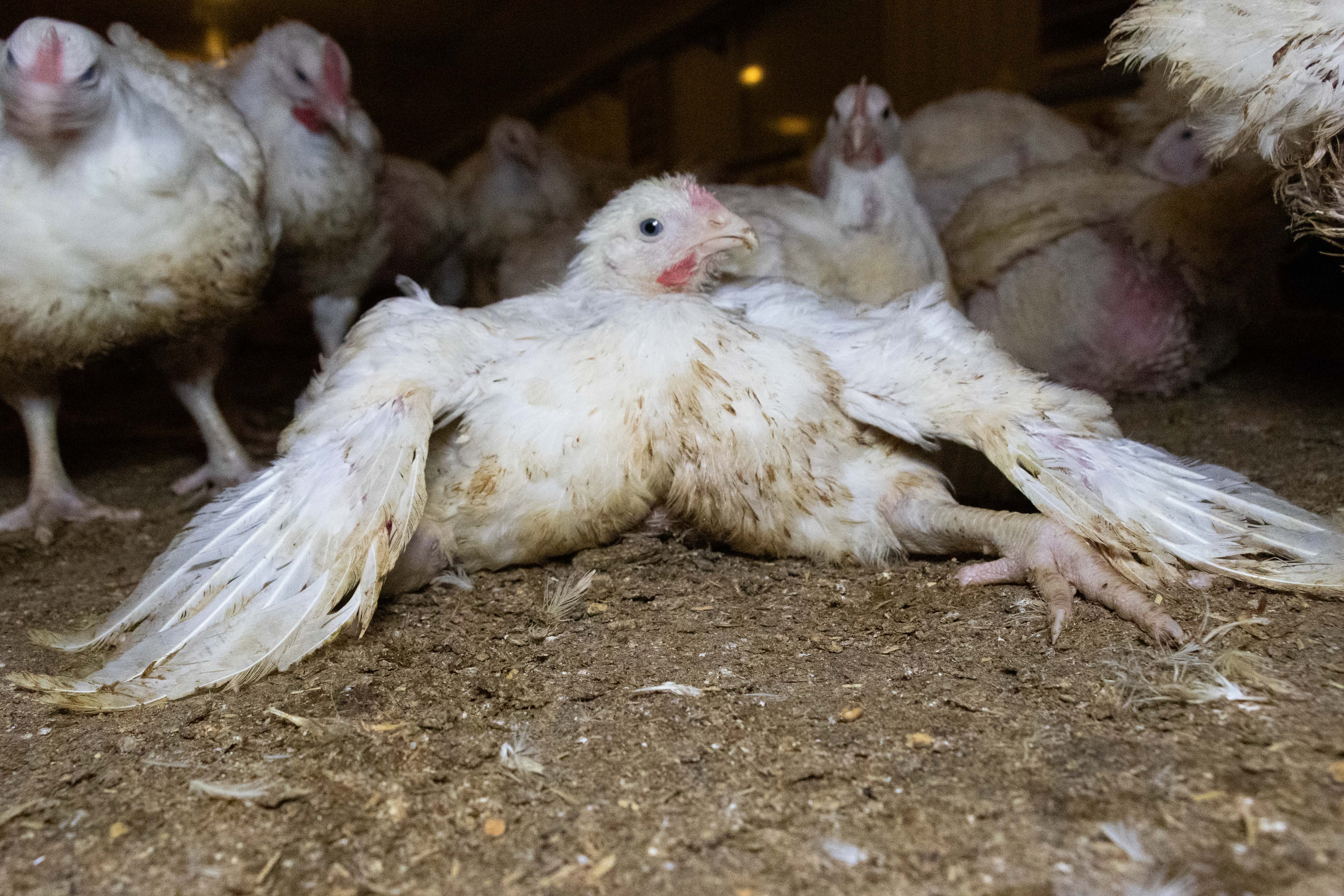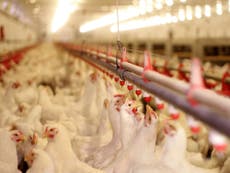The Independent's journalism is supported by our readers. When you purchase through links on our site, we may earn commission.
There’s no place for ‘Frankenchicken’ in post-Brexit Britain – here’s how we end their sale in supermarkets
Whilst the practices behind cheap chicken are the norm across the world, they do not need to be for us


Your support helps us to tell the story
From reproductive rights to climate change to Big Tech, The Independent is on the ground when the story is developing. Whether it's investigating the financials of Elon Musk's pro-Trump PAC or producing our latest documentary, 'The A Word', which shines a light on the American women fighting for reproductive rights, we know how important it is to parse out the facts from the messaging.
At such a critical moment in US history, we need reporters on the ground. Your donation allows us to keep sending journalists to speak to both sides of the story.
The Independent is trusted by Americans across the entire political spectrum. And unlike many other quality news outlets, we choose not to lock Americans out of our reporting and analysis with paywalls. We believe quality journalism should be available to everyone, paid for by those who can afford it.
Your support makes all the difference.We have now left the EU and, as a passionate Brexiteer, I see many great opportunities and benefits that lay ahead for this nation. One of those is the chance to shape our own policies in terms of food and for how we treat the animals under our care.
Animal welfare can be boosted as part of the UK international brand and the new Agriculture Bill, with a bigger focus on the environment, will help environment-focussed funding reaching our countryside and our farmers.
Unfortunately, there is still some work to do to further improve animal welfare on our own side. Recently, exposés of the British chicken industry published last summer have left me deeply concerned about the direction we are heading.
Meet the “Frankenchicken”. The name and appearance of this animal may seem alien and strange, but our relationship with them runs deep. In fact, these are the poor chickens that supermarkets use to produce some of the cheap poultry products in our fridges.
To meet our large appetite for chicken, around one billion broiler chickens are reared in the UK every year. They vastly outnumber any beloved cat or dog that we are so familiar with. And yet, we never see them. Most live hidden behind the high walls of factory farms.
These animals live short and often miserable lives. Footage from a variety of farms supplying Tesco has revealed that many of these Frankenchickens are suffering from horrific lameness and experiencing considerable pain – living in crowded and filthy conditions.
This doesn’t just stop them being able to walk, it can even result in heart attack. Millions die prematurely, and it’s our hard working British farmers who must go through the gruelling process of collecting body after body – and personally culling every chicken that won’t turn a profit by hand.
I personally don't eat meat, but I think everyone can agree that this process and these living conditions are unacceptable. And yet, no major supermarket like Tesco, Co-op or Sainsbury’s will lead the industry forward by committing to better – leaving our farmers with their hands tied.
And yet, it gets worse. In November a report was published suggesting that intensive chicken farming could lead us to a “catastrophic” pandemic. Frankenchicken are so stressed throughout their lives that they are effectively unable to ward off infection. The overcrowded conditions provide an ideal environment for infection to spread rapidly. Although not yet transmissible to people, small scale bird flu outbreaks have emerged consistently on British farms throughout 2020. Over 25,000 turkeys were culled in December, following the ninth bird flu outbreak of the year.
As an elected MP who serves the people, this is no longer just about animals. This is about the safety of my constituents and the British public.
Britain should have world-leading animal welfare standards post-Brexit, and I believe that this is what the British public expects of the food that they buy in their local supermarkets. Whilst the practices behind cheap chicken are the norm across the world, they do not need to be for us.
The Better Chicken Commitment is a new initiative that requires companies to meet higher standards for chickens by 2026, including ending the use of Frankenchicken. Over 150 companies across Europe and the UK have signed up, including Waitrose, Marks & Spencer and even KFC.
Some of our closest neighbours like Denmark are already phasing Frankenchicken out. Over 99 per cent of French supermarkets have signed the Better Chicken Commitment. Brexit gives us a chance to catch up and embody our values of high animal welfare, but big supermarkets have to play their part. Their inaction is no good for the animals and no good for the public.
I believe that affordable food can be healthy for the consumers and respect high animal welfare standards, for the benefit of all. This will not only reduce the suffering of our chickens, but also generally improve the health standards of the population, helping our NHS to cope in these difficult times.
Just like we are turning our back on keeping hens in cages, I believe the British people will turn their back on the cruelty of Frankenchicken. But it cannot happen without our supermarket giants leading the way.
Andrea Jenkyns is a Conservative politician and member of parliament MP for Morley and Outwood

Join our commenting forum
Join thought-provoking conversations, follow other Independent readers and see their replies
Comments